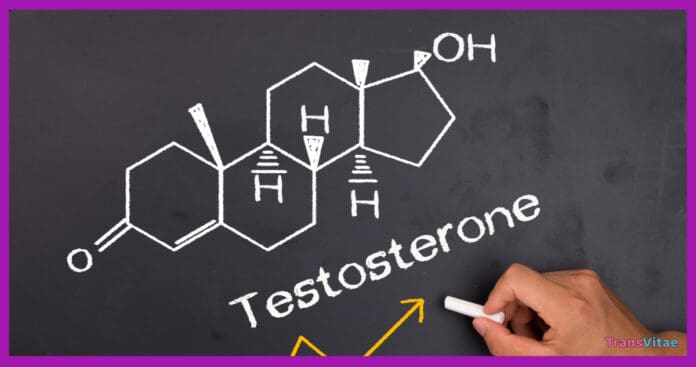Navigating the transition journey as a transgender individual involves numerous challenges and decisions. For transgender men, gender-affirming hormone therapy (GAHT) with testosterone is a vital step towards aligning their physical appearance with their true gender identity. Despite its importance, comprehensive research on the long-term effects and safety of testosterone therapy has been limited, leaving many questions unanswered. However, a recent study by researchers at Okayama University in Japan offers useful insights into this crucial aspect of transgender healthcare.
The Promise of Testosterone Therapy
Testosterone therapy plays a crucial role in inducing masculinizing effects for transgender men. These effects include increased muscle mass, cessation of menstruation, and a deeper voice. The process of administering and adjusting testosterone dosages to achieve these outcomes, however, has not been standardized. This variability in treatment protocols can lead to uncertainties for both patients and healthcare providers.
Researchers looked into the long-term physical effects and safety profile of testosterone therapy for transgender men in a study that Assistant Professor Yusuke Tominaga, Dr. Tomoko Kobayashi, and Dr. Motoo Araki from the Department of Urology at Okayama University led. Their findings, published in Andrology on April 2, 2024, shed light on crucial aspects of hormone administration and its impact on body composition.
Study Methodology and Findings
The research team analyzed data from transgender men who commenced GAHT between May 2000 and December 2021. They meticulously recorded physical findings, blood test results, and menstrual cessation rates. Participants were stratified into low-dose and high-dose groups based on their testosterone dosage to compare the effects on body composition and laboratory parameters.
Key Outcomes:
- Menstrual Cessation: Both low-dose and high-dose testosterone regimens showed favorable outcomes, with no significant differences in menstrual cessation rates up to 12 months. This finding reassures that varying dosages can effectively halt menstruation, a significant milestone for many transgender men.
- Body Composition Changes: Participants exhibited a decrease in body fat percentage and an increase in lean body mass over time. Notably, the high-dose group experienced greater gains in lean body mass during the initial year of therapy, suggesting a potential strategy for those seeking more rapid physical changes.
- Safety Profile: Importantly, the study found no evidence of long-term, dose-dependent side effects such as polycythemia (increased red blood cell count) or dyslipidemia (abnormal blood lipid levels). This finding is crucial in addressing concerns about the safety of testosterone therapy and providing reassurance to both clinicians and transgender individuals.
Clinical Implications and Future Directions
The findings from this study provide valuable evidence on the long-term effects of testosterone therapy, providing crucial insights for clinicians managing transgender healthcare. By elucidating the safety and efficacy of hormone therapy, this research helps alleviate uncertainties and empowers transgender men to make informed decisions about their treatment.
A Deeper Dive into the Findings
Dr. Tominaga and his team observed that adherence to prescribed testosterone regimens played a significant role in achieving desired outcomes. They noted interindividual variability in testosterone dose requirements, highlighting the importance of regular monitoring and personalized treatment plans. The study also emphasized the need for proper timing of blood draws to accurately assess testosterone levels.
In terms of side effects, while acne progression was common, severe acne was rare. Hypertension requiring antihypertensive treatment was not observed. The increase in hematocrit (a measure of red blood cells) was statistically significant but remained within the normal range for males. Importantly, none of the subjects required cessation of therapy or other treatments for polycythemia.
The Bottom Line
This groundbreaking study from Okayama University opens the door to more inclusive and evidence-based care for transgender men undergoing testosterone therapy. By shedding light on the long-term effects and safety of testosterone therapy, it provides much-needed reassurance and guidance for both patients and healthcare providers. As transgender healthcare continues to evolve, research like this plays a crucial role in ensuring that individuals receive the best possible care on their journey towards living their true selves.
About Okayama University, Japan
Okayama University is a leading institution in Japan, dedicated to creating and establishing new paradigms for sustainable development. The university offers a wide range of academic fields and conducts advanced, up-to-date research, providing an enriching educational experience.
About Assistant Professor Yusuke Tominaga
Dr. Yusuke Tominaga is an Assistant Professor at the Department of Urology, Okayama University Graduate School of Medicine, Japan. With over a decade of experience, Dr. Tominaga has co-authored numerous peer-reviewed articles on testosterone therapy for gender identity disorders, bladder tuberculosis, and prostate cancer. His notable achievements include exploring the long-term outcomes of hormone therapies and the impacts of various treatments on genitourinary cancers.
By contributing to the growing body of research on transgender healthcare, studies like this one from Okayama University help pave the way for a future where all individuals can access the medical support they need to live authentically and healthily.


